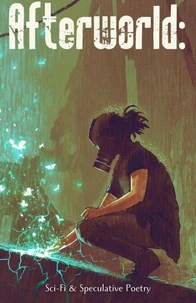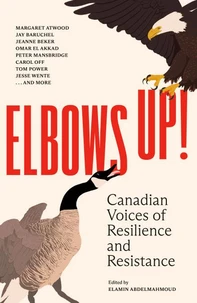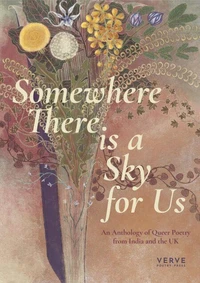Sacred Books of the East. Exploring Eastern Wisdom: A Journey through Sacred Scriptures and Spiritual Classics
Par : , , , ,Formats :
Disponible dans votre compte client Decitre ou Furet du Nord dès validation de votre commande. Le format ePub est :
- Compatible avec une lecture sur My Vivlio (smartphone, tablette, ordinateur)
- Compatible avec une lecture sur liseuses Vivlio
- Pour les liseuses autres que Vivlio, vous devez utiliser le logiciel Adobe Digital Edition. Non compatible avec la lecture sur les liseuses Kindle, Remarkable et Sony
 , qui est-ce ?
, qui est-ce ?Notre partenaire de plateforme de lecture numérique où vous retrouverez l'ensemble de vos ebooks gratuitement
Pour en savoir plus sur nos ebooks, consultez notre aide en ligne ici
- Nombre de pages431
- FormatePub
- ISBN4057664134578
- EAN4057664134578
- Date de parution19/11/2019
- Protection num.Digital Watermarking
- Taille797 Ko
- Infos supplémentairesepub
- ÉditeurGOOD PRESS
Résumé
The "Sacred Books of the East" is a monumental series edited by the distinguished scholar Max M?ºller, comprising translations of key religious texts from various Eastern traditions, including Hinduism, Buddhism, Jainism, and Zoroastrianism. Spanning multiple volumes, this collection showcases a wealth of literary styles, from philosophical dialogues and hymns to mythological narratives and moral fables, all framed within the rich tapestry of Eastern spirituality.
M?ºller's meticulous approach aimed to provide Western audiences with accessible insights into the profound and diverse wisdom of Eastern religions during the 19th century, a time marked by increasing intercultural interest and exchange. Max M?ºller, a pioneering philologist and orientalist, was instrumental in bringing Eastern literature to the forefront of Western thought. His personal experiences with different cultures and languages, coupled with a profound sense of religious inquiry, informed his vision for this anthology.
An advocate for understanding and respect among diverse faiths, M?ºller viewed the "Sacred Books of the East" as a bridge between civilizations, fostering empathy and knowledge amid the era's colonial tensions. This series is indispensable for those seeking to deepen their understanding of Eastern religious thought and its lasting influence on global spirituality. Scholars, students, and curious readers alike will find that the "Sacred Books of the East" not only illuminates ancient texts but also invites contemplation on the shared human quest for meaning.
M?ºller's meticulous approach aimed to provide Western audiences with accessible insights into the profound and diverse wisdom of Eastern religions during the 19th century, a time marked by increasing intercultural interest and exchange. Max M?ºller, a pioneering philologist and orientalist, was instrumental in bringing Eastern literature to the forefront of Western thought. His personal experiences with different cultures and languages, coupled with a profound sense of religious inquiry, informed his vision for this anthology.
An advocate for understanding and respect among diverse faiths, M?ºller viewed the "Sacred Books of the East" as a bridge between civilizations, fostering empathy and knowledge amid the era's colonial tensions. This series is indispensable for those seeking to deepen their understanding of Eastern religious thought and its lasting influence on global spirituality. Scholars, students, and curious readers alike will find that the "Sacred Books of the East" not only illuminates ancient texts but also invites contemplation on the shared human quest for meaning.
The "Sacred Books of the East" is a monumental series edited by the distinguished scholar Max M?ºller, comprising translations of key religious texts from various Eastern traditions, including Hinduism, Buddhism, Jainism, and Zoroastrianism. Spanning multiple volumes, this collection showcases a wealth of literary styles, from philosophical dialogues and hymns to mythological narratives and moral fables, all framed within the rich tapestry of Eastern spirituality.
M?ºller's meticulous approach aimed to provide Western audiences with accessible insights into the profound and diverse wisdom of Eastern religions during the 19th century, a time marked by increasing intercultural interest and exchange. Max M?ºller, a pioneering philologist and orientalist, was instrumental in bringing Eastern literature to the forefront of Western thought. His personal experiences with different cultures and languages, coupled with a profound sense of religious inquiry, informed his vision for this anthology.
An advocate for understanding and respect among diverse faiths, M?ºller viewed the "Sacred Books of the East" as a bridge between civilizations, fostering empathy and knowledge amid the era's colonial tensions. This series is indispensable for those seeking to deepen their understanding of Eastern religious thought and its lasting influence on global spirituality. Scholars, students, and curious readers alike will find that the "Sacred Books of the East" not only illuminates ancient texts but also invites contemplation on the shared human quest for meaning.
M?ºller's meticulous approach aimed to provide Western audiences with accessible insights into the profound and diverse wisdom of Eastern religions during the 19th century, a time marked by increasing intercultural interest and exchange. Max M?ºller, a pioneering philologist and orientalist, was instrumental in bringing Eastern literature to the forefront of Western thought. His personal experiences with different cultures and languages, coupled with a profound sense of religious inquiry, informed his vision for this anthology.
An advocate for understanding and respect among diverse faiths, M?ºller viewed the "Sacred Books of the East" as a bridge between civilizations, fostering empathy and knowledge amid the era's colonial tensions. This series is indispensable for those seeking to deepen their understanding of Eastern religious thought and its lasting influence on global spirituality. Scholars, students, and curious readers alike will find that the "Sacred Books of the East" not only illuminates ancient texts but also invites contemplation on the shared human quest for meaning.




















